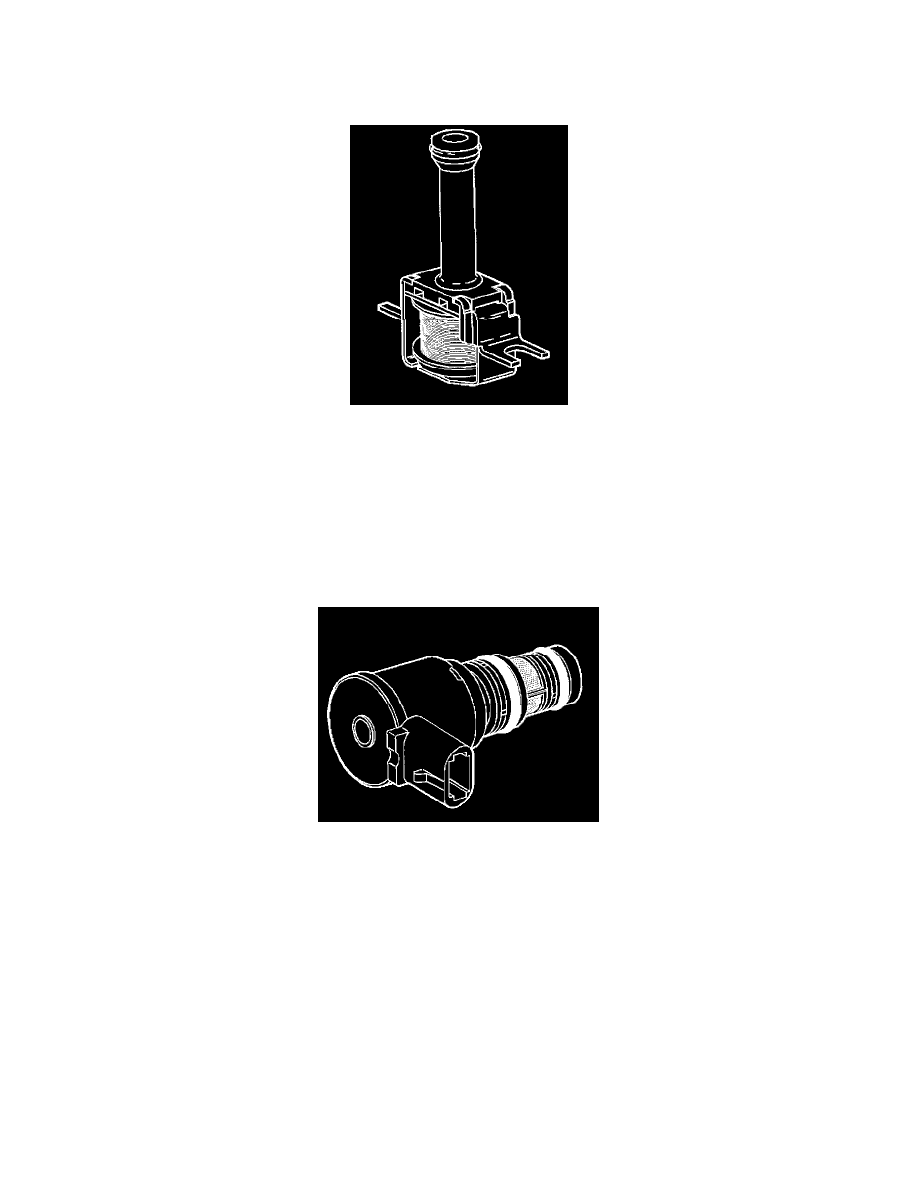Hombre S Regular Cab 4WD V6-4.3L (1999)

Torque Converter Clutch Solenoid: Description and Operation
Torque Converter Clutch Solenoid Valve
Important: The TCC solenoid resistance should be 21-26 ohms minimum when measured at 20 °C (68 °F).
If a fault is detected in the TCC solenoid circuit, code P0740 will set.
The torque converter clutch solenoid valve is a normally open exhaust valve that is used to control torque converter clutch apply and release. When
grounded (energized) by the PCM, the TCC solenoid valve stops converter signal oil from exhausting. This causes converter signal oil pressure to
increase and shifts the TCC solenoid valve into the apply position.
The brake switch is an input to the PCM, and the PCM directly controls the TCC apply based on the brake switch status.
Torque Converter Clutch PWM Solenoid Valve
Important: TCC PWM solenoid valve resistance should be 10-11 ohms when measured at 20 °C (68 °F), and 13-15 ohms when measured at 100 °C
(212 °F)
The torque converter clutch PWM solenoid valve controls the fluid acting on the converter clutch valve, which then controls the TCC apply and
release. This solenoid is attached to the control valve Body assembly within the transmission. The TCC PWM solenoid valve provides smooth
engagement of the torque converter clutch by operating on a negative duty cycle a variable percent of ON time.
If a fault is detected in the TCC PWM circuit, code P1860 will set.
